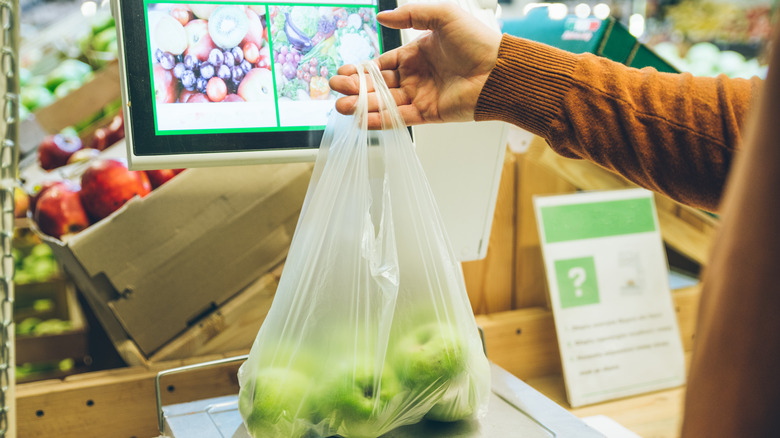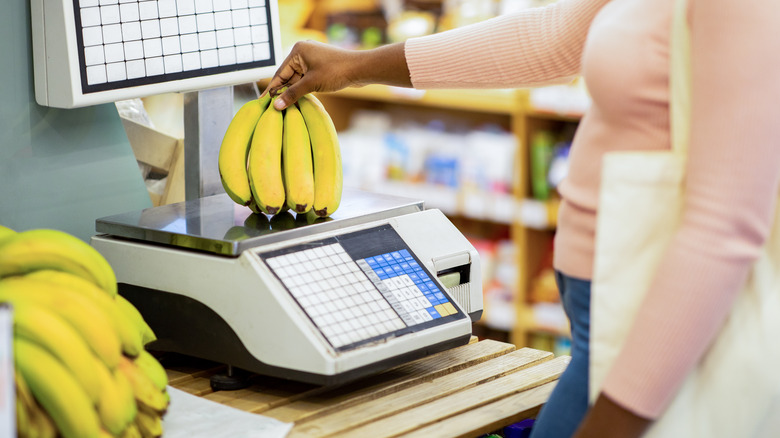Why There Is A Government Agency That Checks Grocery Store Scales
Believe it or not, there are people in the United States government looking out for your best financial interests. Yes, it's hard to fathom such a thing could be true, but it is — well, at least at one very small agency you've probably never heard of. Now that in-store grocery shopping is back on the rise, you may have found yourself weighing produce and wondering if someone in the back has tinkered with the scales to squeeze an extra dime out of you. Generally, it's safe to assume they haven't, but you're far from the first person to wonder.
In 1821, John Quincey Adams opined that weights and measures "enter into the economical arrangements and daily concerns of every family," and therefore, tight standards must be upheld for weighing goods. According to the National Institute of Standards and Technology (NIST), the NIST Office of Weights and Measures (OWM) was formed to address this concern. When it was established in 1836, the OWM was tasked with defining the standard units of measurement the government uses to this day. It has upheld them ever since.
Ensuring fair scales in grocery stores
The Office of Weights and Measures (OMW) is a subdivision of the National Institute of Standards and Technology (NIST), which is, in turn, a subdivision of the U.S. Department of Commerce. According to the OWM, close to 50% of America's Gross Domestic Product depends on products that are sold by weight. Ensuring accurate measurements is essential to protecting fair business and consumer confidence.
Though the NIST does not have its own team of inspectors, each American state has its own laws and regulations regarding scales and weighing goods. The NIST partners with local agencies to send inspectors known as "weighmasters" to test the accuracy of individual grocery store scales. As NIST explains, weighmasters are equipped with a set of working standard weights whose values have been certified by the United States government. The good news is that only about one percent of scales end up being labeled inaccurate enough to actually impact sale prices. The California Department of Food and Agriculture and other state entities also check truck scales, pharmacy scales, and gas meters to ensure that you really are getting what you pay for, even if inflation is changing the way you shop.

